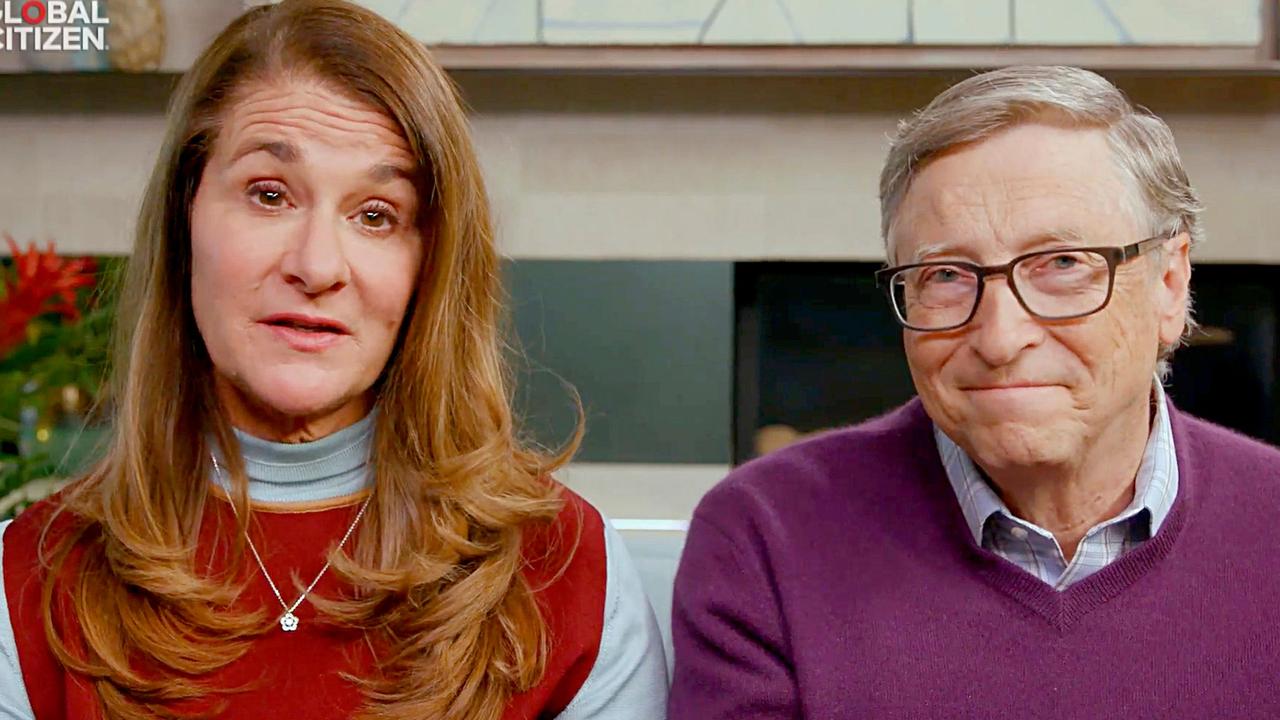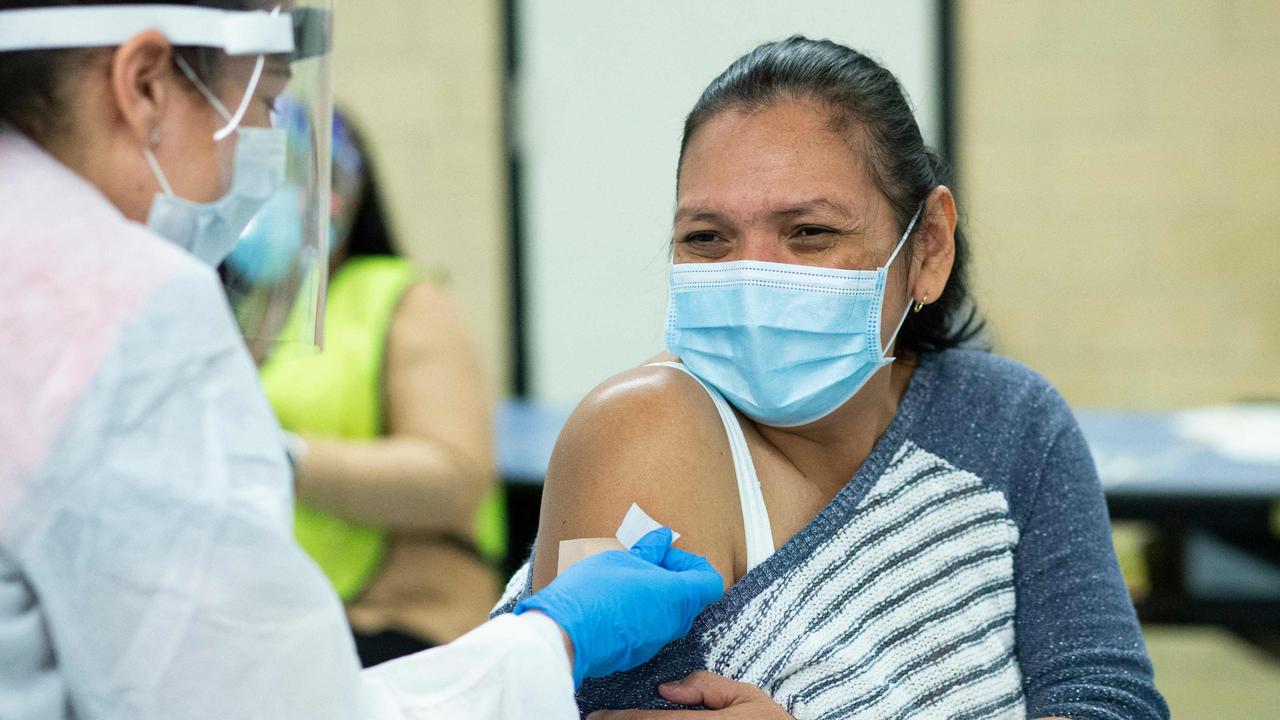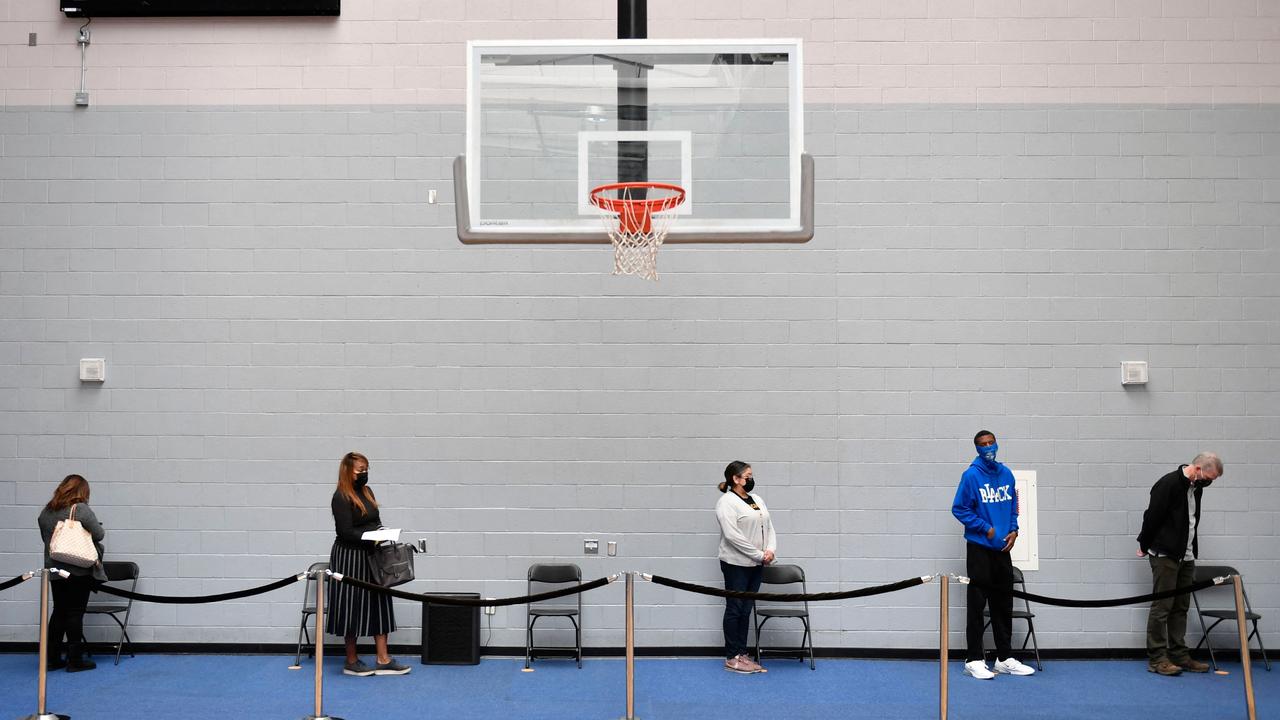Global herd immunity against COVID-19 won’t be reached until 2022, Melinda Gates reveals
Global herd immunity against COVID-19 won’t be reached until next year, billionaire philanthropist Melinda Gates has said.

Worldwide herd immunity against COVID-19 won’t be achieved until 2022, according to billionaire philanthropist Melinda Gates, as experts predict the United States is only 40 per cent immune to the virus.
Ms Gates, who along with her husband, Bill, has donated millions to coronavirusvaccine and treatment research, said global immunity will largely depend on getting the vaccine to developing nations “en masse”, which she estimated won’t begin until the end of this year.
“So it’ll be some time in 2022 ’til we have full herd immunity,” Ms Gates told CNBC on Monday.
“And boy, I think we’re all looking forward to that. There are a lot of people that are suffering, not just in the US but everywhere.”
Last month, Bill Gates told the network that getting the coronavirus jab into developing countries will be the “only way to bring the pandemic to an end”.
RELATED: Controversial COVID plan shot down

Ms Gates’ comments come as health experts and leaders across the world scramble to distribute as many vaccines as possible.
Some US experts predict it could take months, if not years, for countries to vaccinate enough people to attain herd immunity. The longer it takes to get there, the more time the virus has to mutate into potentially dangerous new variants.
“We haven’t had so much infection and, as a result, have not had as much nationally acquired immunity,” UC San Francisco epidemiologist and infectious disease expert Dr George Rutherford told the Los Angeles Times.
He added that the US average for immunity currently hovers around 40 per cent – either from vaccination or because people have recovered from infection.
Last October, the UK’s chief scientific advisor Patrick Vallance warned it’s likely COVID-19 will become as “endemic” as the annual flu virus – meaning it will circulate throughout society each year, though at a lower level than it is at the moment.
“The notion of eliminating COVID from anywhere is not right, because it will come back,” he told the National Security Strategy Committee.
“We can’t be certain, but I think it’s unlikely we will end up with a truly sterilising vaccine, (that is) something that completely stops infection, and it’s likely this disease will circulate and be endemic, that’s my best assessment.
“Clearly as management becomes better, as you get vaccination which would decrease the chance of infection and the severity of disease … this then starts to look more like annual flu than anything else, and that may be the direction we end up going.”
RELATED: The world’s worst COVID-19 outbreak


In a February piece for The Conversation, the University of Western Australia’s Dr Zoe Hyde wrote that herd immunity is “the only sustainable, long-term strategy to prevent the virus from spreading throughout the community” in Australia.
“The proportion of the population needing to be vaccinated to achieve herd immunity depends on both how contagious a disease is, and how effective the vaccines for it are,” Dr Hyde wrote.
“We’d need to vaccinate almost everyone in Australia to achieve herd immunity with the AstraZeneca vaccine, which isn’t feasible … However, we’d perhaps only need to vaccinate 63 per cent of the population with the Pfizer/BioNTech vaccine, or 67 per cent if we used the Novavax vaccine. This is achievable.” Of course that would be dependent on the Government buying more of this vaccine.
With no widespread community transmission, she added, “Australia can afford to prioritise a long-term herd immunity strategy, rather than focusing on a short-term goal of saving lives”.
“We must use high-efficacy vaccines to build herd immunity, and secure Australia’s long-term future,” she wrote.




